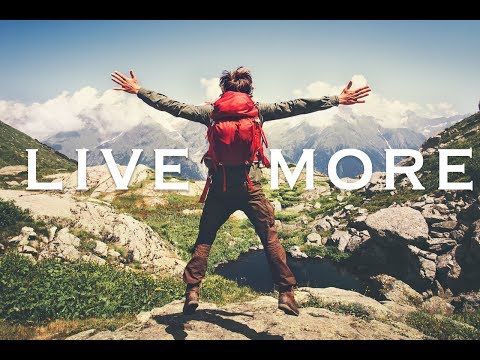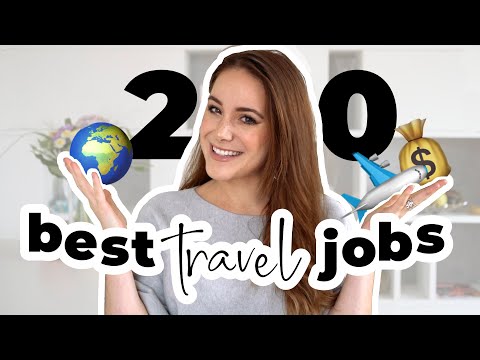Contents
- Introduction
- What are travel restrictions?
- How are travel restrictions enforced?
- Who enforces travel restrictions?
- What are the consequences of violating travel restrictions?
- Are there any exceptions to travel restrictions?
- What are the benefits of travel restrictions?
- What are the drawbacks of travel restrictions?
- Conclusion
- Further reading
How do they enforce travel restrictions? The U.S. government has a variety of tools at its disposal to ensure that people comply with travel restrictions.
Checkout this video:
Introduction
The coronavirus pandemic has resulted in a number of travel restrictions being put in place by governments around the world. But how exactly are these restrictions enforced?
In many cases, it is simply up to individual airlines and other transport companies to refuse to allow passengers who are not compliant with the restrictions to board their flights or take their journey. This can be done by requiring passengers to show proof of compliance, such as a negative COVID-19 test, before they are allowed to check in.
However, some countries are taking a more proactive approach and are sending enforcement teams to airports to check that passengers comply with the travel restrictions. These teams typically consist of police officers or other government officials, who may stop and question passengers or even deny them entry to the country if they do not have the required documentation.
What are travel restrictions?
There are many types of travel restrictions that can be put in place by a government. They can range from Level 1, which is the lowest level of restriction and only advises people to use caution when traveling, to Level 4, which is the highest level of restriction and advises people not to travel at all. The four levels are:
-Level 1: Exercise Normal Precautions
-Level 2: Exercise Increased Caution
-Level 3: Reconsider Travel
-Level 4: Do Not Travel
The Centers for Disease Control and Prevention (CDC) uses these levels to advise people on how to stay safe when traveling. Each level has different recommendations on what people should do before, during, and after their trip.
For example, at Level 1, the CDC recommends that people should get vaccinated against diseases that are common in their destination country. They also recommend that people should practice good hand hygiene and avoid contact with sick people.
At Level 2, the CDC recommends that people should get vaccinated against diseases that are common in their destination country. They also recommend that people take extra precaution when travelling by avoiding contact with sick people, practicing good hand hygiene, and staying up-to-date on medical news about their destination country.
At Level 3, the CDC recommends that people should not travel to their destination country. If they must travel, they should make sure to get vaccinated against diseases that are common in their destination country. They also recommend that people take extra precaution when travelling by avoiding contact with sick people, practicing good hand hygiene, and staying up-to-date on medical news about their destination country.
At Level 4, the CDC recommends that people should not travel to their destination country.
How are travel restrictions enforced?
There are a variety of ways that travel restrictions can be enforced, depending on the type of restriction and the country or region involved. Some common methods of enforcement include:
-Border checkpoints: Border checkpoints are typically manned by officials from the country or region in question, who may stop and question travelers before allowing them to enter. In some cases, travelers may be required to present documentation such as a passport or visa before being allowed to proceed.
-ID checks: In many cases, travelers will be required to present some form of identification (usually a passport) before being allowed to board a plane, train, or boat heading into the restricted area. ID checks may also be conducted at border crossings and other points of entry.
-Bans on certain items: In some cases, certain items may be banned from being brought into the restricted area. These items may include things like weapons, drugs, and certain types of food.
-Quarantines: Quarantines may be imposed in cases where there is a risk of spreading disease. Travelers may be required to undergo medical testing and/or stay in designated quarantine areas until it is determined that they are not sick.
Who enforces travel restrictions?
There are several federal agencies that help to enforce travel restrictions. The Department of Homeland Security is responsible for border security, which includes enforcing travel restrictions. The Department of State is responsible for issuing passports and visas, and they also work with foreign governments to help enforce travel restrictions. The Transportation Security Administration is responsible for security at airports, and they also help to enforce travel restrictions.
What are the consequences of violating travel restrictions?
If you violate the terms of your entry into the United States, you may be subject to fines, removal from the country, or other consequences. The severity of the penalty will depend on the reason for your violation. For example, if you overstay your visa or enter the country without proper documentation, you may be fined and/or deported. If you are convicted of a crime while in the United States, you may be imprisoned and/or deported.
Are there any exceptions to travel restrictions?
While most people are subject to the travel restrictions, there are some exceptions. For example, people who are traveling for medical reasons or to attend funerals may be able to get a special waiver from the State Department. If you believe that you fall into one of these categories, you should contact the State Department to inquire about obtaining a waiver.
What are the benefits of travel restrictions?
There are many benefits to enforcing travel restrictions, including reducing the spread of disease, controlling immigration, and protecting a country’s borders. By restricting travel, a country can better monitor and control who enters and exits its borders. This can help to prevent the spread of diseases and other undesirable things into the country. In addition, travel restrictions can help to control immigration by making it more difficult for people to illegally enter a country. Finally, travel restrictions can help to protect a country’s borders by making it more difficult for people to cross them without permission.
What are the drawbacks of travel restrictions?
While travel restrictions can be effective in slowing the spread of disease, they can also cause significant economic disruption. This is particularly true if the restrictions are imposed with little notice, as was the case with the recent outbreak of Ebola in West Africa.
Travel restrictions can also disrupt essential supplies and services, as well as prevent humanitarian aid from reaching those who need it. In some cases, they may even do more harm than good by increasing stigma and discrimination against people from affected areas.
Conclusion
The CDC’s travel restrictions are currently the strongest measure in place to prevent the spread of COVID-19 in the United States. However, these restrictions are not enforceable by law, and there is no system in place to track or enforce them. This lack of enforcement may make it difficult to prevent people from travelling to areas with high rates of COVID-19 transmission.
Further reading
If you are planning to travel, it is important to stay up-to-date on travel restrictions that may be in place. Here are some ways that countries enforce travel restrictions:
-Quarantine: This is when a person who has been exposed to a disease is isolated from the general population to prevent the spread of the disease. Travelers may be required to quarantine for a period of time before they are allowed to enter a country.
-Closed borders: A country may close its borders to all travelers, or only those coming from certain countries. This can make it difficult or impossible to enter a country.
-Health screening: Travelers may be required to undergo health screenings, such as temperature checks, before they are allowed to enter a country.
-Restrictions on travel: A country may restrict travel within its borders, or between different regions of the country. This can make it difficult to get around.



